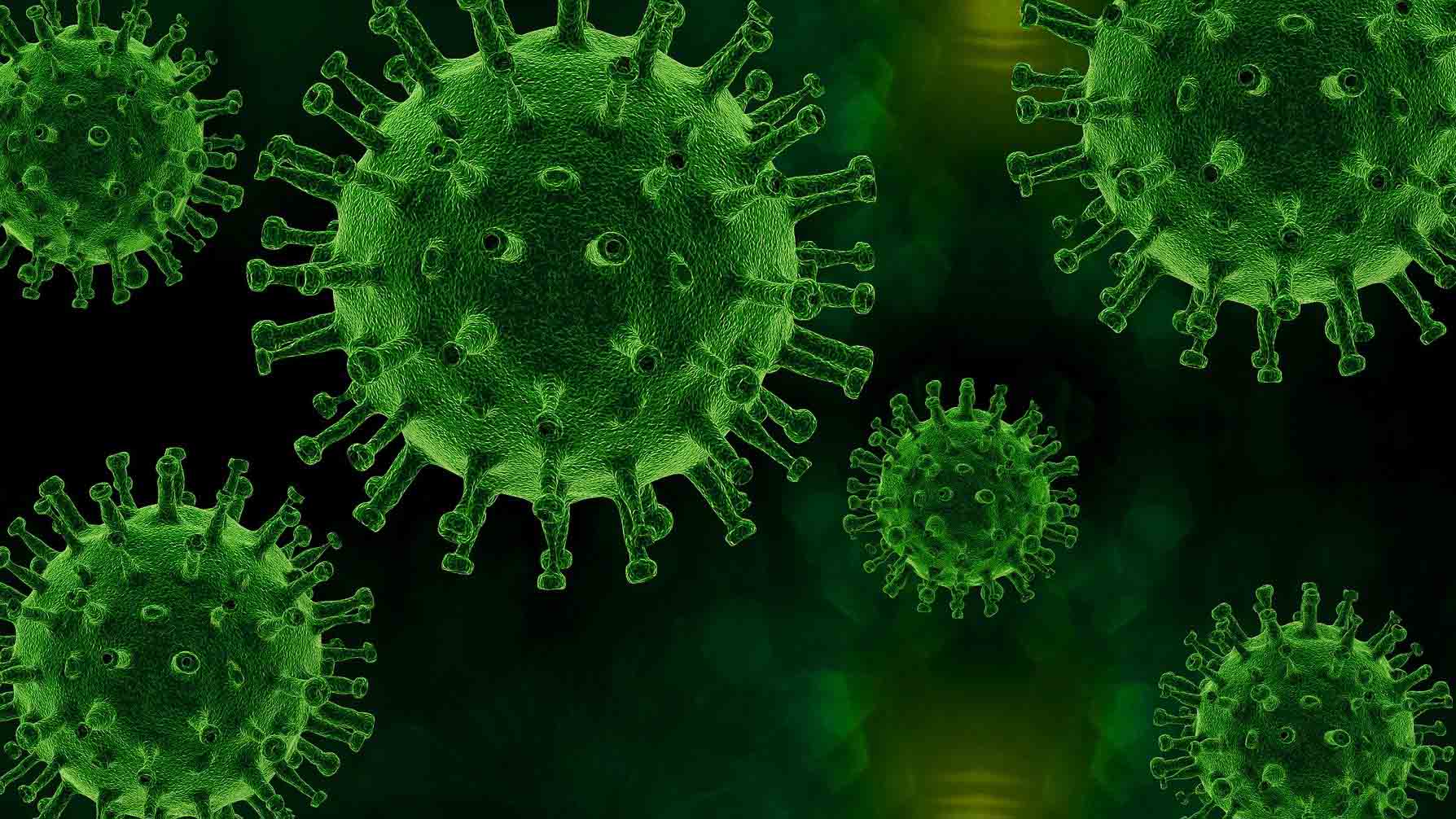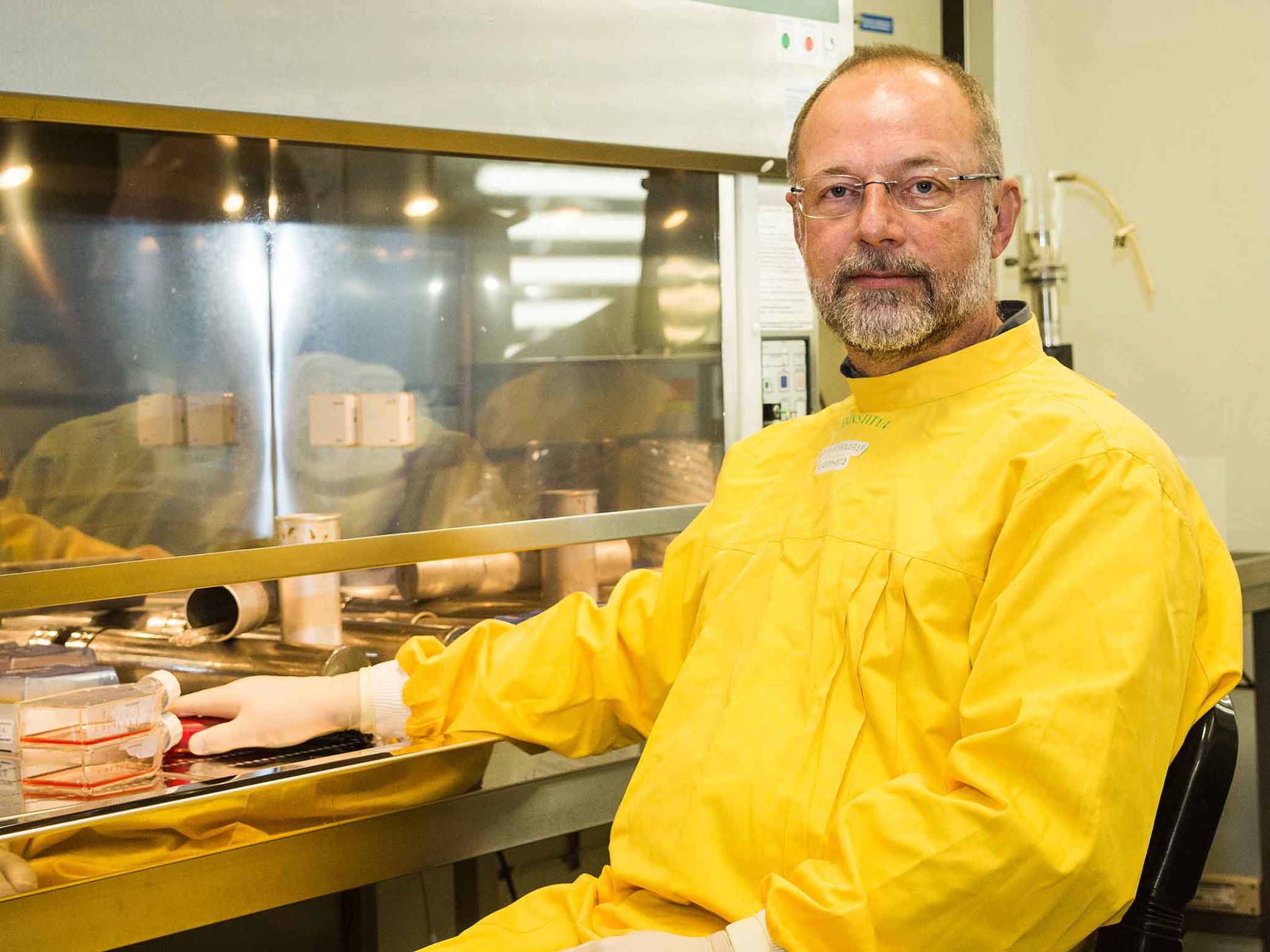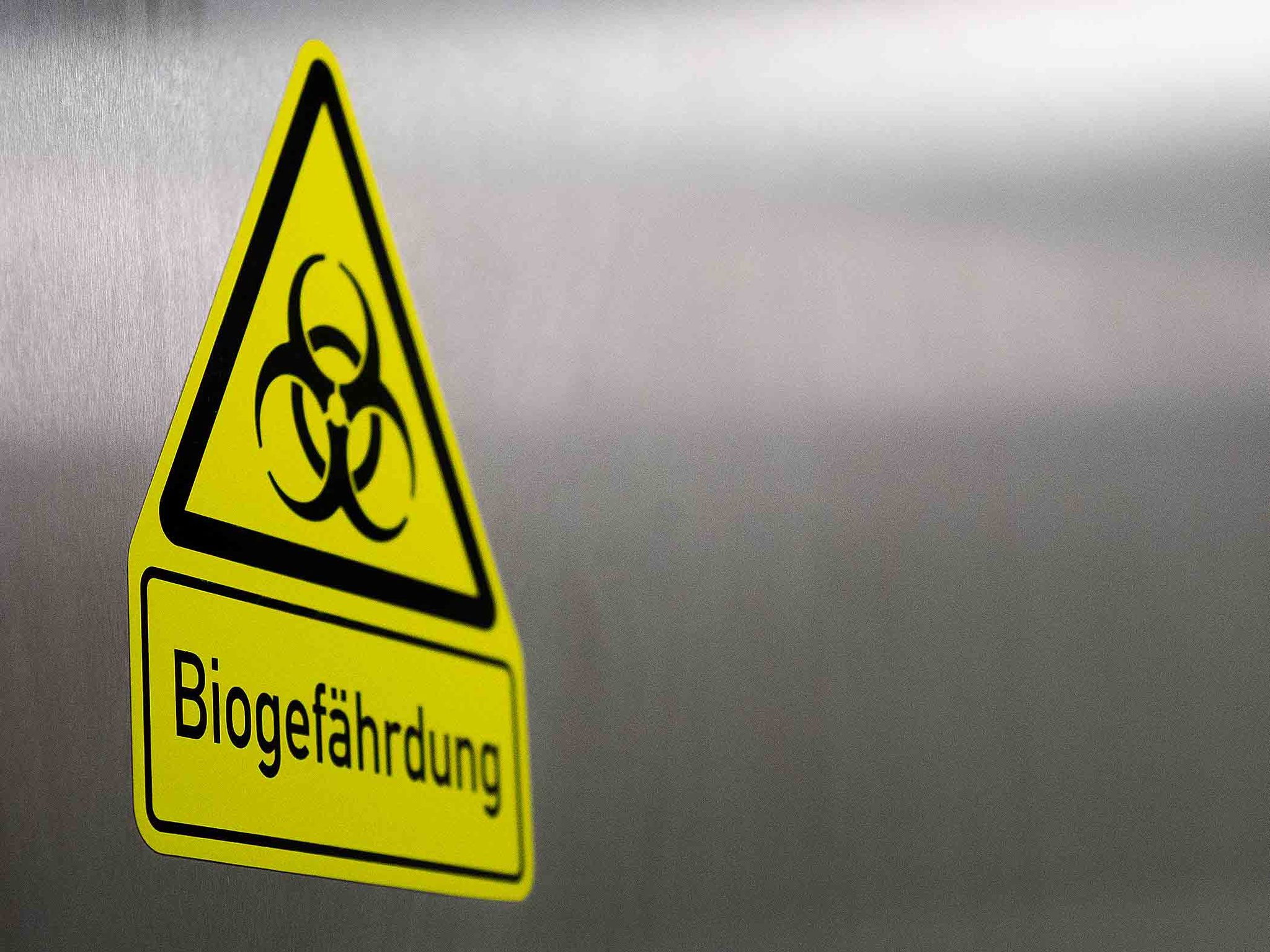
Photo: PIRO4D / Pixabay
“Finding a Vaccine Is Difficult”
An interview with Professor Andreas Dotzauer, the head of the Laboratory for Virus Research at the University of Bremen
He is currently the most sought-after scientist at the University of Bremen: In the middle of the corona crisis, the virologist Professor Andreas Dotzauer is available for the media in Bremen and surrounding areas as an expert. He is also in close contact with his colleagues and is following the expert discussions and the development of the pandemic.
Mr. Dotzauer, to what extent has your day-to-day life as a scientist changed?
I am receiving a great deal of questions for which I have been asked to provide some explanations – for example from the Weser-Kurier newspaper, for whom I already recorded a podcast, from Radio Bremen, and other media channels. However, many people who I do not know are also getting in touch with me. They do not have virologic questions but rather want tips on how to behave etc. Some of them also ask how much sense the measures taken even make. And then there are the calls from people who I do not know but who would like to contribute their expertise to solving the problem. They’ve often developed something – for example a protective cream - and now want to know if it might help in this situation.
When did you hear of SARS-CoV-2 for the first time?
It was around Christmas, when the first reports came from China.

Photo: Kai Uwe Bohn / University of Bremen
“Virologists always think about the fact that it could end badly”
Did you think back then: Damn, this could end badly?
Virologists always think that when they hear of something like this. On the other hand, they take a look at what happened in such situations in the past. Thankfully, we quickly had a handle on things during the first SARS outbreak in 2002/2003 and the MERS outbreak in 2012 – both of which belong to the coronavirus family. And then you’re torn: You hope that things end well without any serious consequences, but you also know at the back of your mind that exactly what we are experiencing now could happen.
How are you affected personally and how are you working at the moment?
On the one hand, I am a sought-after expert with specialist knowledge at the moment and am happy to be of service. On the other hand, I want to keep up to date with the latest developments. There are a great deal of reports and news in specialist circles at the moments. I have to take a look at these and review them based on the publications. That is obviously very time consuming. Many things are quickly said now and they may sound promising. However, when you take a closer look at the publications, you notice that not everything is well founded.

Photo: Kai Uwe Bohn / University of Bremen
“Comprehensive Tests Require Time”
Why does it take so long to find a vaccine?
A vaccine simulates an infection. We try to replicate the infection as realistically as possible. This is difficult because there is a different immune response to every viral infection. The immune system has a special strategy to fight each pathogen. Antibodies are enough to fight some viruses but there are also ones for which this is no solution. In such cases we need additional immune cells that attack the infected cells. You could say that the immune system calls back-up by doing this. However, you need entirely different stimulation to promote the creation of antibodies on the one hand and immune cells on the other. A vaccine should be able to reliably do this – at best without any side effects and with the ability to be used on all people. You need comprehensive test series for this – and they take time. It is after all the aim that healthy people be immunized - and they should remain healthy.
What happens if we cannot maintain the contact restrictions and the company closures for as long as the virologists would like?
Then we have to continue to ensure great organization so that broken chains of contact are not re-opened. Otherwise it would lead to an extreme spread again.
“Deceleration Saves Lives”
It is still thinkable that up to 70 percent of the population becomes infected in the long-term. Are the current efforts justified?
A pandemic like this has a duration of one to two years. If we manage it well, that stated 70 percent will become infected over the course of this period. Our health system can deal with that. However, if many cases occur in a short space of time, the system will collapse – just take a look at Italy. That’s why there is such an insistence on the deceleration of development. The drastic measures that we are implementing now will profit us in the middle and long term. To put it plainly, we are saving lives by doing this.
What effect do warmer temperature have on the virus? Could a hot summer help us?
It may be the case. It definitely works that way with other respiratory illnesses. However, we cannot exactly determine this for the current coronavirus. It is already warmer in Italy and the virus is not behaving in such a way. The number of infections in Africa are currently on the lower side – it could be that the temperatures are influencing this. The data is, however, still sparse.
What does your research focus on?
I mainly deal with the hepatitis A virus. I am investigating how this virus is active within cells and how it makes use of raw cell material, which the virus needs to multiply within the cells. I am interested in which mechanisms are behind this.
More information
Laboratory for Virus Research (in German only)